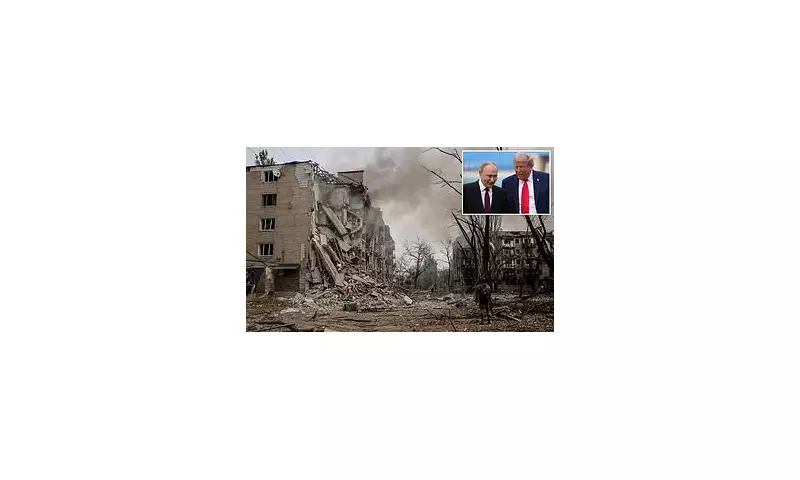
In a revelation that could send shockwaves through international diplomatic circles, sources close to the Trump campaign have reportedly engaged in preliminary discussions about a potential Ukraine peace framework with high-level Russian officials.
The Backchannel Conversations
According to multiple insiders, these unofficial talks explored a controversial proposal that would see Ukraine cede significant territory in exchange for a ceasefire and potential NATO membership restrictions. The discussions allegedly occurred without the knowledge or approval of the Biden administration, raising serious questions about protocol and diplomatic interference.
Key Elements of the Proposed Deal
- Territorial concessions that would see Russia maintain control over Crimea and portions of Donbas
- Security guarantees limiting Ukraine's future NATO membership prospects
- Economic considerations and potential sanctions relief for Russia
- International monitoring of disputed territories
International Reaction and Concerns
European allies have expressed deep concern about these behind-the-scenes negotiations, fearing they could undermine collective Western strategy and potentially reward Russian aggression. A senior European diplomat, speaking on condition of anonymity, stated that such unilateral discussions "threaten the unity we've worked so hard to maintain."
The timing is particularly sensitive as Ukraine prepares for what could be a decisive phase in its counteroffensive operations, with military analysts suggesting the coming months could prove critical to the conflict's ultimate trajectory.
Political Fallout in Washington
Within Washington, news of these discussions has sparked bipartisan concern. Some lawmakers worry about the precedent set by unofficial diplomatic channels operating parallel to official government policy. Others question whether such talks could complicate ongoing US support for Ukraine at a crucial moment in the conflict.
National security experts emphasise that while backchannel diplomacy has historical precedent, conducting such sensitive negotiations during an active presidential campaign raises unique constitutional and policy questions about who speaks for American foreign policy.
What Comes Next?
As the 2024 election approaches, these revelations highlight how dramatically US foreign policy toward Ukraine and Russia could shift depending on the outcome. Both campaigns are expected to face increased scrutiny over their respective approaches to ending Europe's largest land conflict since World War II.
The White House has maintained its official position supporting Ukraine's territorial integrity and sovereignty, while the Trump campaign has yet to issue a detailed statement addressing these specific allegations.





